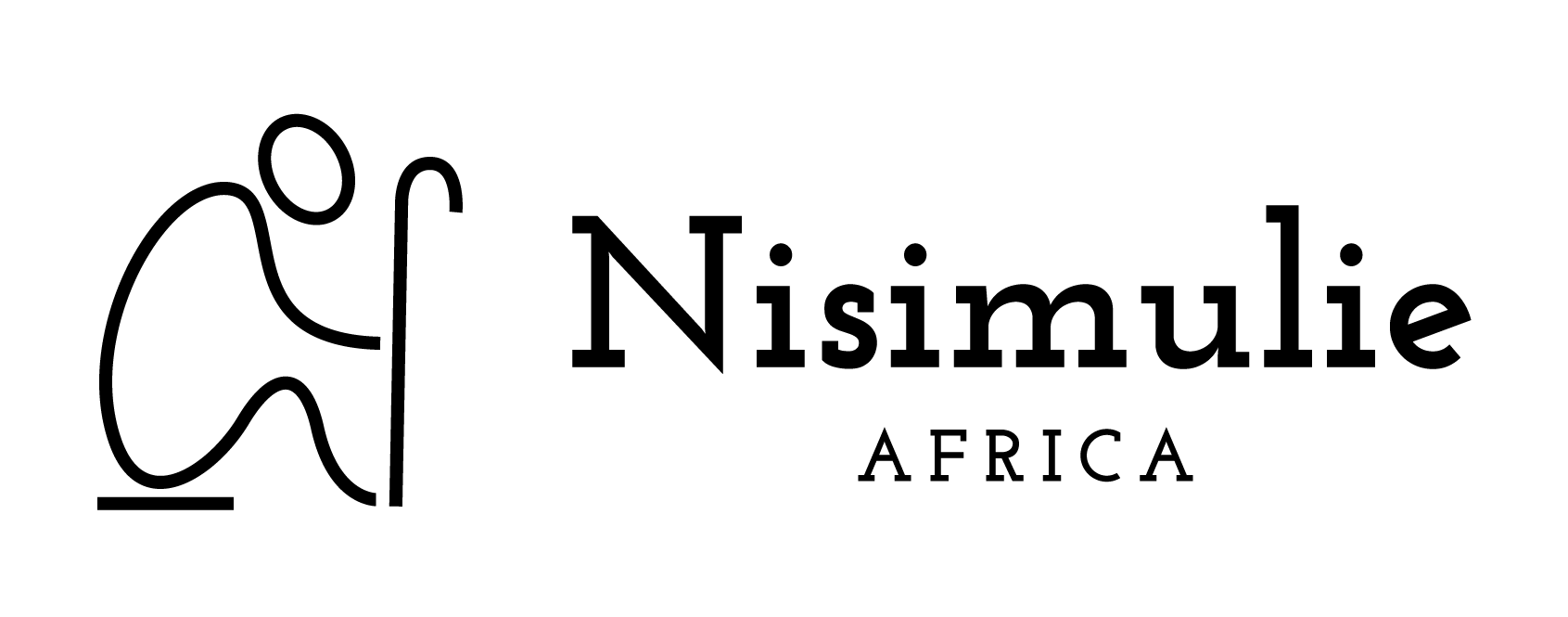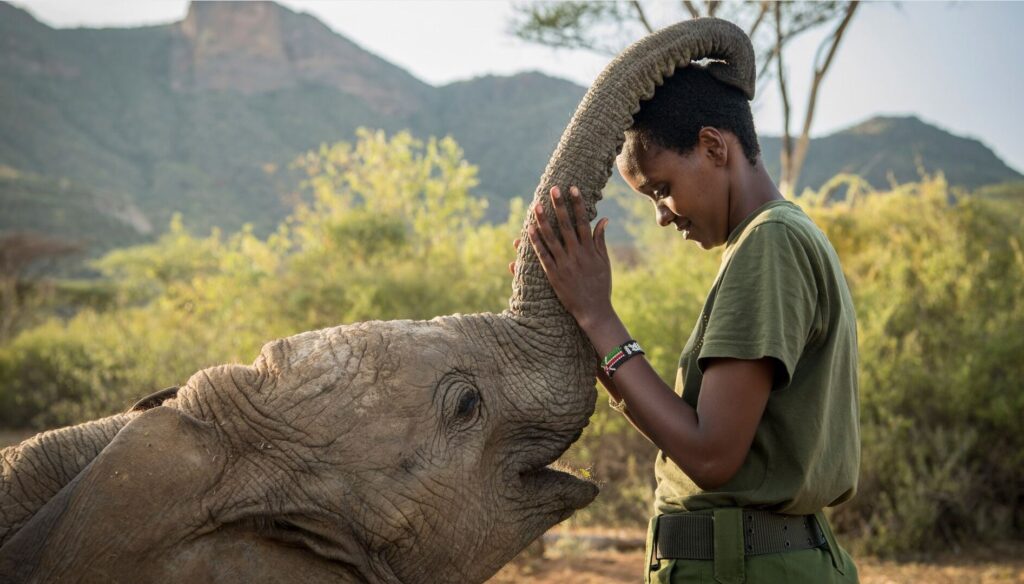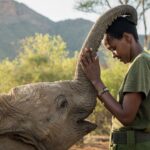Our talk today takes us to the Kenyan northerly gem globally reputed and associated with the setting of the British drama film -Born Free, Camel racing, breath-taking tourism sites, colourful cultures and, as per our talk today, home to the Reteti elephant sanctuary. The sanctuary is a Samburu community owned and run initiative that caters to orphaned and abandoned elephant calves. Opened back in August 2016, the sanctuary is designed to rescue, and release orphaned and abandoned elephant calves, whilst creating much needed benefits to the local people that live alongside them including the 30 plus keepers who are all residents of the community based Namunyak conservancy.
Ever since the establishment of the orphanage, the calves have been dependant on human baby formula for food which was not very idealic basing on the fact that ingredients in the formula weren’t 100% natural and the high costs that go into accessing the food item. On the onset of the COVID-19 pandemic, access to the baby formula became even more of a challenge with the imposition of nationwide lockdown that impeded travel rising the costs even higher. In adapting to these drastic unforeseen changes, the sanctuary had to come up with a better plan to source for food for these little giants. In their quest, the sanctuary found sanctuary in a source that had been right next door since its inception – Goat Milk. The goat milk-based formula proved to not only be easier to source but turned out to be more nutritious to the calves at half the cost of the human baby formula.
Ever since the sanctuary started using goat milk-formula as a substitute the elephants have been thriving as portrayed by their states of recovery after every traumatic rescue with shorter adjustment time to the rest of the orphaned herd. The goat milk is mixed with other ingredients including moringa leaves, probiotics, nutritional supplements, desiccated coconut, whey protein, spirulina, honey, molasses, oats, and multivitamins to create a formula that has been a noteworthy success.
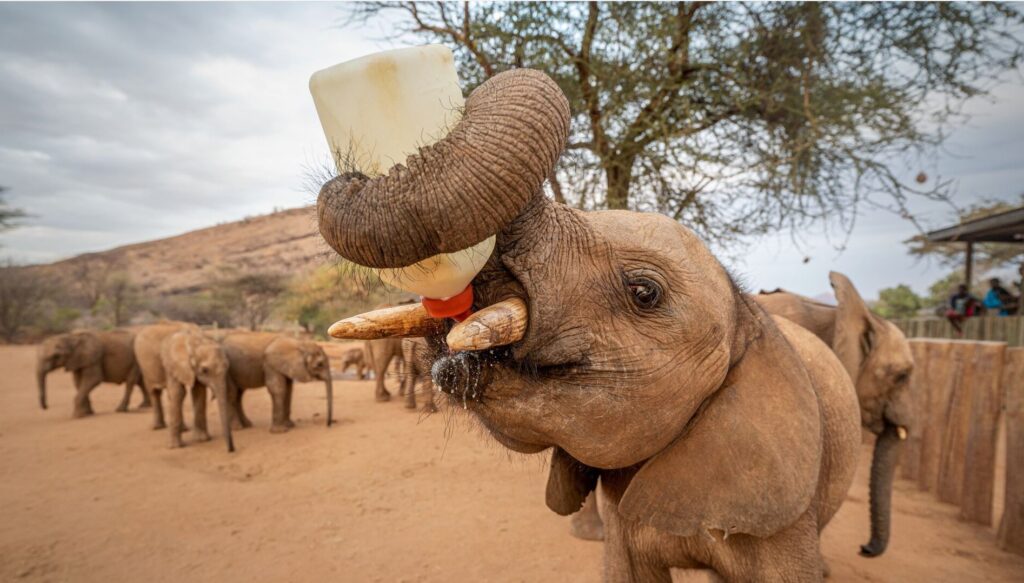
But success has not only been to the sanctuary. The effect of this positive move has had a domino effect on the adjacent and immediate community surrounding the conservancy. The Samburu community, which is primarily a pastoralist nomadic community, now sell more than 150 litres of goat milk daily to the sanctuary. The income is used to pay for the kids education, settling hospital bills, buying food and catering for other needs of the community.
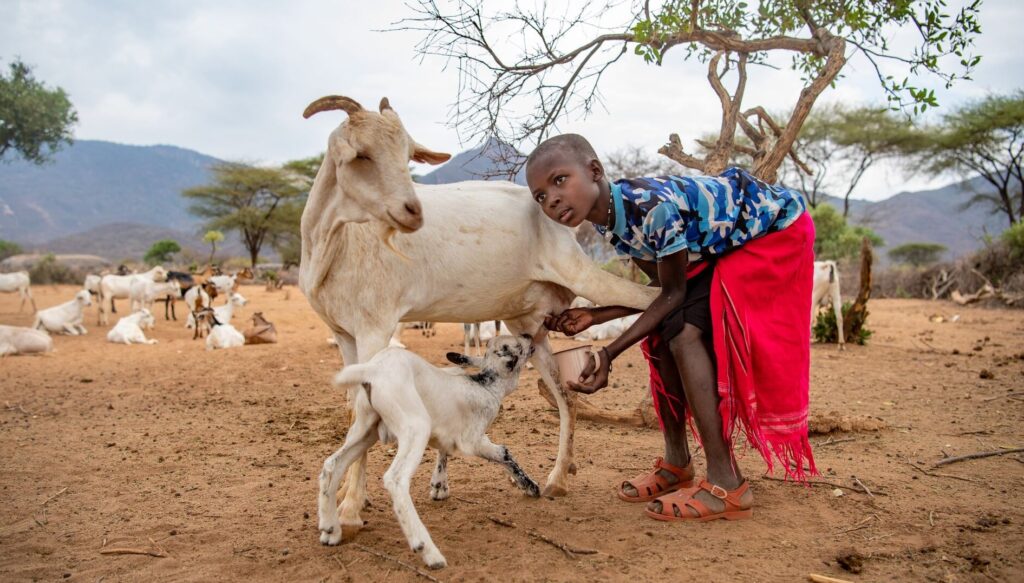
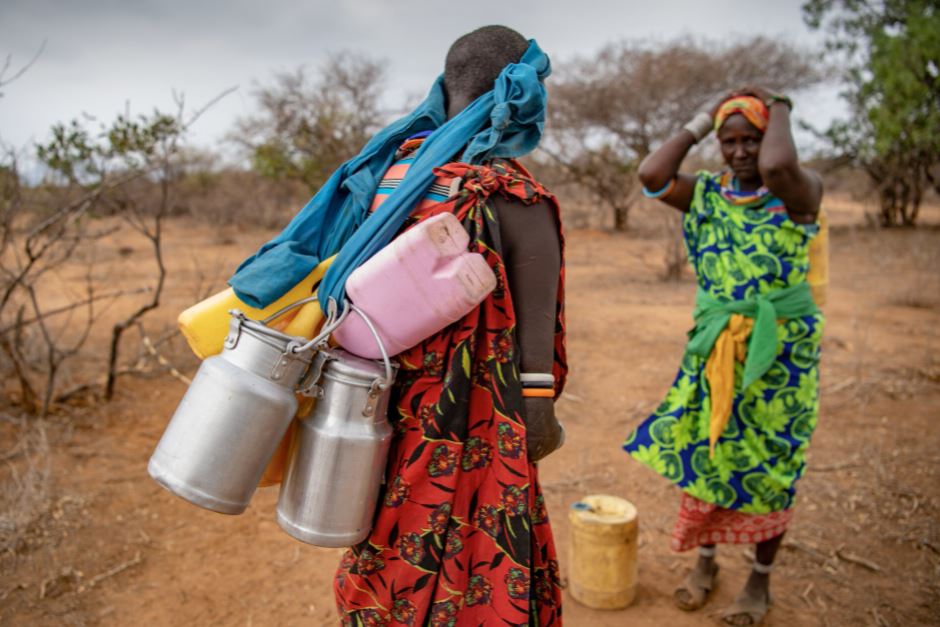
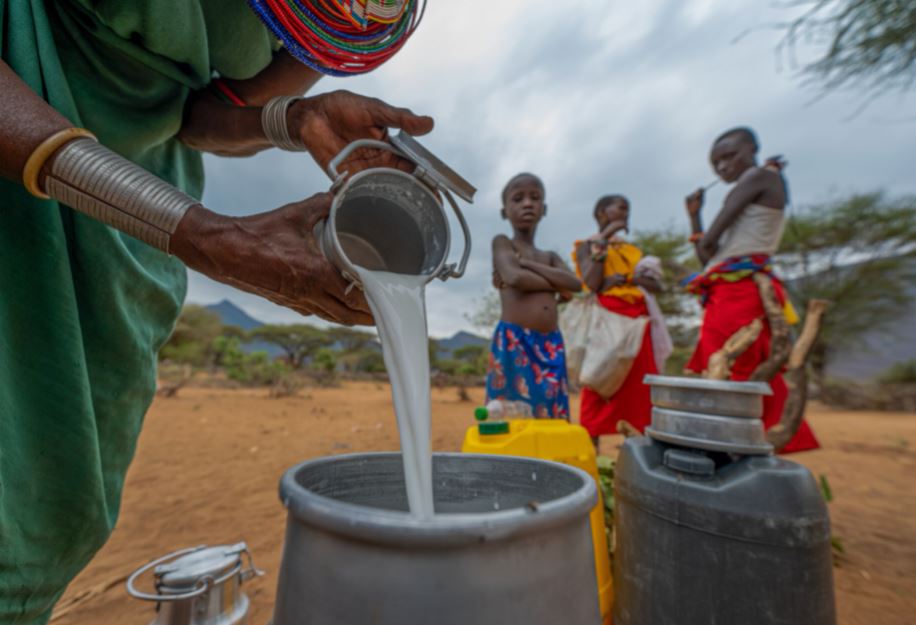
It takes courage and a lifetime commitment to do what the extraordinary community of the Reteti sanctuary do. Opportunities are being created, livelihoods are improving, and wildlife is returning, proving that nature can provide a sustainable economy for the populations that occupy its magnificent ecosystem.
We call upon everyone to join hands in the conservation efforts by the sanctuary with donations towards the sanctuary or adoption of the calves in support of this worthy cause.
Image source: National Geographic

